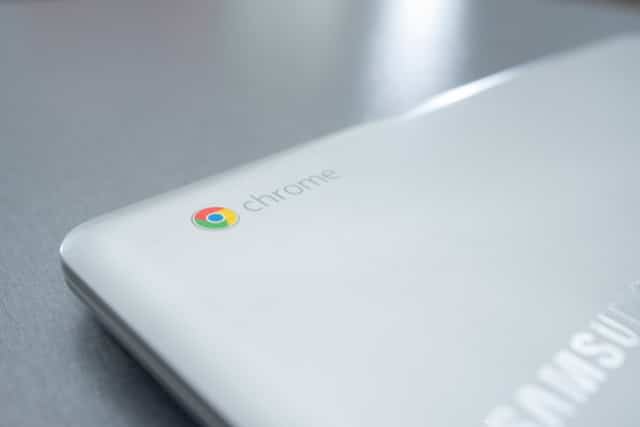
Google releases Chrome OS 78 complete with virtual desktops and more
The stable build of Chrome OS 78 is now rolling out to Chromebook and other compatible devices. A notable addition with this update is the arrival of virtual desktops, something Google has been testing in preview builds for a little while now.
Just as with Windows and macOS, the virtual desktop feature of ChromeOS gives users access to a number of workspaces that can be used to keep different apps and windows separate from each other. But while this is probably the highlight of ChromeOS 78, it is certainly not the only change.
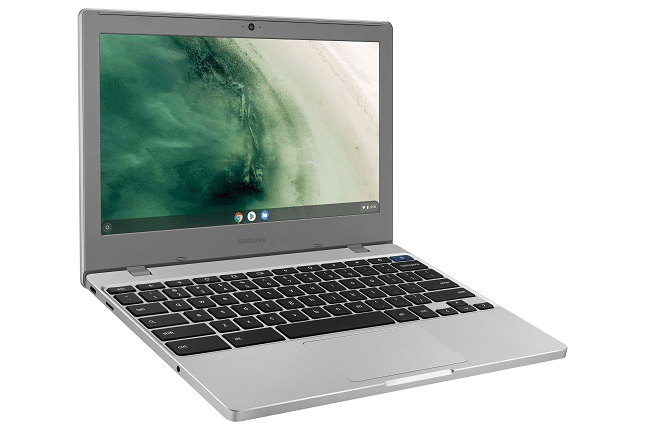
Samsung launches Chromebook 4 and 4+
Chromebooks used to be glorified web browsers running atop the Linux kernel, but these days, they are far more useful. If you need more than just web apps, you can now run Android apps and traditional desktop Linux programs on Chrome OS. Best of all, you can run them all side by side, making it all feel like a cohesive experience -- it doesn't feel like you are using a mixture of software intended for different platforms.
Today, Samsung launches its latest Chrome OS laptops -- the 11.6-inch Chromebook 4 and 15.6-inch Chromebook 4+. The former weighs just 2.6 pounds, while the latter is a heftier 3.75 pounds. Both laptops are powered by the same Intel Celeron N4000 CPU, and you can choose between 4GB and 6GB of RAM. Strangely, there is no option for 8GB of memory. Storage options are 32GB or 64GB, and sadly, regardless of capacity, you will get a sluggish eMMC drive. Both machines have USB-C and micro SD readers, which is cool, but the Wi-Fi is only 802.11ac (Wi-Fi 5) -- not the newer 802.11ax (Wi-Fi 6).

There will be no more tablets from Google
Google is getting out of the tablet-making business, but says that it will continue to produce smartphones and laptops.
The announcement means that Google is ceasing work on two unreleased Pixel tablets, with the company's head of hardware saying: "Google's hardware team will be solely focused on building laptops moving forward". While ditching tablets is not entirely surprising, Google is said to have been working on two new tablets until as recently as this week.
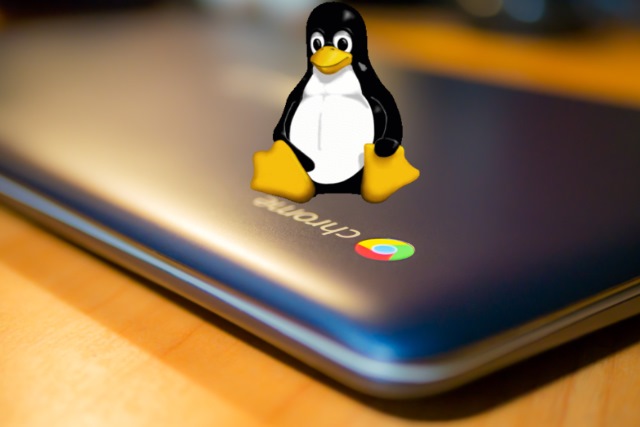
Chrome OS 75 has full USB support in Linux apps
Google has added full USB support for Linux apps in the dev build of Chrome OS 75. The new feature arrived in build 75.0.3759.4 of the operating system and helps to improve the experience of running Linux apps on a Chromebook.
While USB support is not a brand-new feature, anyone who has tried using Linux apps on a Chromebook will be well aware that it has been a bit, well, ropey to say the least. Now this changes.
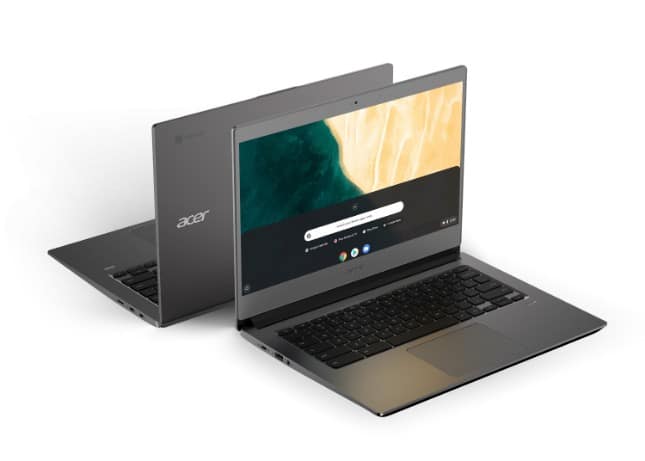
Acer announces a pair of Chromebooks that are elegant, rugged, and affordable
Acer announced a bunch of new products today, including many Windows machines. While I am sure those computers running Microsoft's desktop operating system are fine, they don't really excite me. Instead, it is Acer's Linux-based Chromebooks that get my engine running. The company has been cranking out great Chrome OS laptops for many years, and they have proven to be a great value for consumers.
Today, Acer unveils a pair of new elegant Chromebooks. Called "714" and "715," the former has a 14-inch display while the latter is 15.6-inch. Both machines have fingerprint readers, aluminum bodies, 12-hour battery life, and can be configured with 8th generation Intel Core processors (Pentium and Celeron models will be available too). The larger 715 has something the 714 doesn't -- a number pad, which apparently is a first for any Chromebook. The 714 has slimmer bezels, however. Best of all, they are both designed to be rugged and withstand abuse.
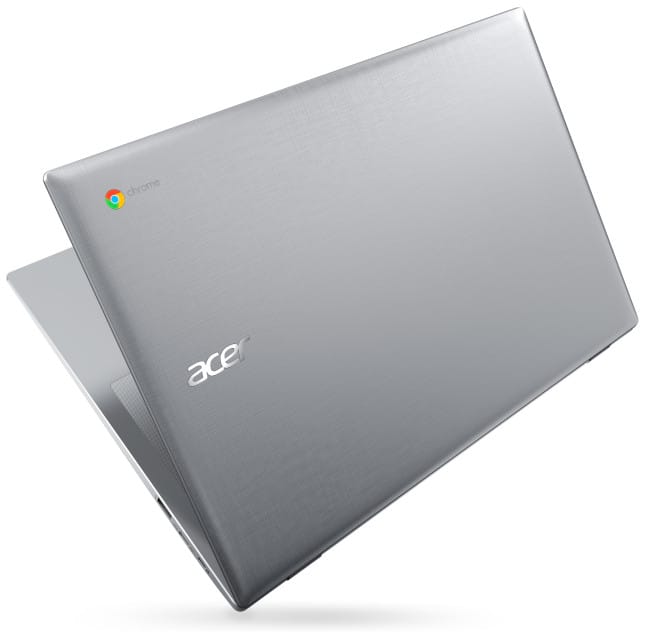
Google is bringing virtual desktops to Chrome OS
Chromebooks have fared far better than many people would have first thought when they first appeared on the market, and Google's Chrome OS is going from strength to strength. While not yet ready to topple either Windows or macOS, the operating system continues to gain features that make it increasingly appealing.
One addition that is on the horizon and likely to please many users and potential users alike is virtual desktops. This is something we have heard about before in relation to Chrome OS, but a recent commit to the Chromium Gerrit shows that "virtual desks" are being worked on -- and there's even a video showing off the feature.
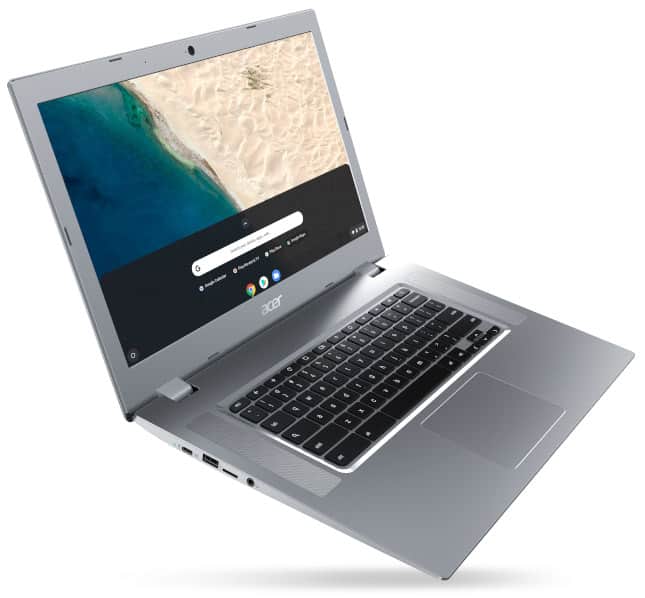
Acer unveils affordable 15.6-inch AMD-powered Chromebook 315 with Radeon graphics
Many home consumers don't really need Windows anymore. With so many things being web-based nowadays, it is much wiser to opt for the more secure Linux-based Chrome OS. Not satisfied with only using web-based solutions? Chromebooks can now run Android apps too, giving the user a huge library of quality apps. In addition, Google is currently testing the ability to run traditional Linux programs on Chrome OS. Even though the feature is technically in beta, it works wonderfully -- I have successfully installed and used GIMP, for instance.
Since more and more consumers are choosing Chrome OS, computer manufacturers are increasingly offering quality Chromebooks. In other words, these laptops are no longer just meant to be low cost. With that said, there is no reason a great Chromebook can't be affordable, and today, Acer unveils a beautiful such product. Called "Chromebook 315," the 15.6-inch laptop is powered by AMD's excellent APUs (a combination CPU and GPU). So yes, this is a Chromebook with Radeon graphics! There are three display options from which to choose, with one of them offering touch -- a nice option for Android apps. The top-firing speakers should make it great for consuming media too.
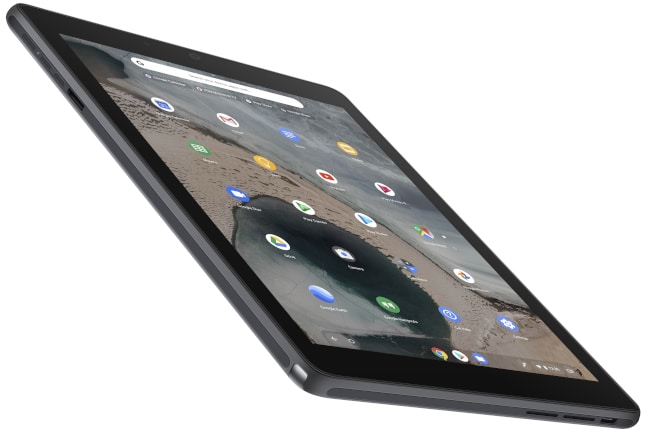
ASUS unveils new Chromebooks and a Chrome OS tablet for education
Chrome OS has slowly become one of the most promising operating systems. What began life as a "glorified web browser" has grown to also run Android apps and traditional Linux programs. At the same time, Windows 10 has declined in quality, causing many users to lose faith in Microsoft's operating system. For education in particular, school districts are increasingly turning to Google's Chromebooks rather than devices running Windows 10.
Today, ASUS unveils four new Chrome OS devices for the education market. Three of them (C403, C204, and Flip C214) are laptops, with one of them (the Flip) being a convertible -- meaning it can fold into a tablet. In addition, there is a traditional tablet (CT100). While Chrome OS tablets are fairly unproven, the ability to run Android apps makes them quite useful.
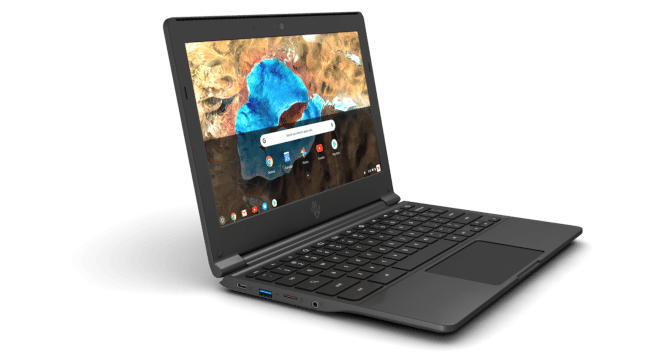
Sector 5 launches affordable E3 Chromebook
For many consumers, Windows 10 is total overkill. If most (or all) of your tasks are web-based, a Chromebook is probably a much better option. After all, the Linux-based Chrome OS is fast and stable, while also being extremely secure. Why bother with all the malware and lag of Windows if you don’t have to?
Today, a company called Sector 5 launches a new Chromebook model. Called "E3," it has an attractive design, decent specs, plenty of ports, and an affordable asking price. Best of all, it supports both Android apps and traditional Linux desktop programs too.
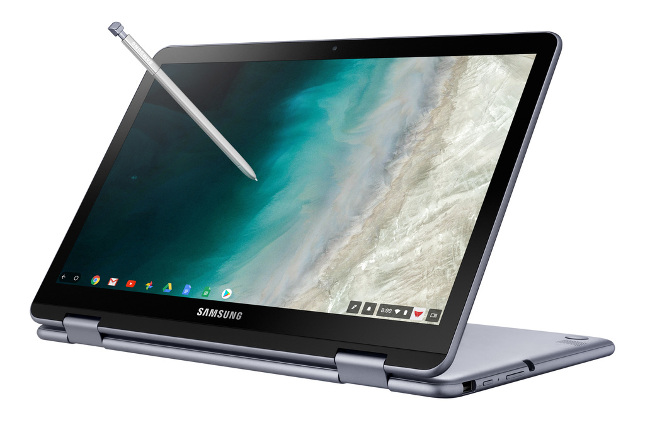
Samsung Chromebook Plus V2 (LTE) coming soon -- a great Microsoft Surface alternative
Windows 10 has been a dumpster fire lately, but thankfully, Microsoft's OS stranglehold on the consumer PC business is dramatically diminishing. These days, many consumers would be better served by purchasing a MacBook or Chromebook rather than a laptop running the less-secure Windows. True, Apple's computers are expensive, but luckily, laptops running Chrome OS can be quite affordable. Chromebooks are shockingly capable too -- especially since Android app support was added.
Just as Samsung manufactures excellent smartphones running Google's Android operating system, it also makes quality laptops running the search giant's Linux-based Chrome OS. The Samsung Chromebook Plus V2 is one of the nicer Chromebooks, and today, the company unveils a new variant. The hardware stays the same, except for one addition -- LTE compatibility. In other words, the Samsung Chromebook Plus V2 (LTE), as it is called, is fully functional without Wi-Fi -- just add a mobile data plan!
Google's Pixel Slate is an affordable 2-in-1 alternative to Microsoft Surface
Interest in tablets has been waning for years -- even Apple can’t really get us that excited about new iPads. People are still buying Amazon’s Kindle Fires, but mainly because they are so attractively priced.
At its 'Made by Google' event in New York today, Google revealed a brand new Chrome OS tablet called the Pixel Slate with an optional keyboard and Pixelbook Pen.
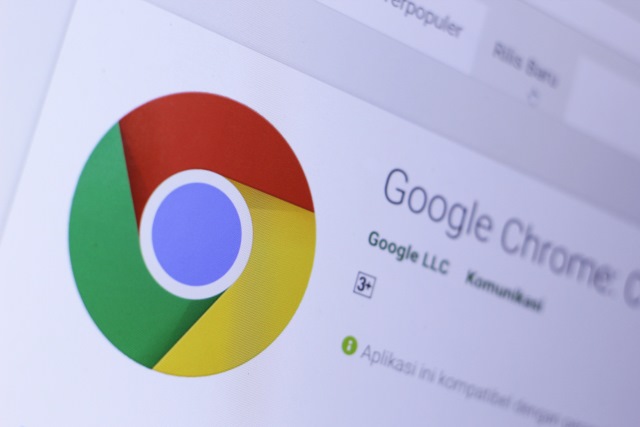
Chrome OS 69 rolls out with Linux app support and new Material Theme
Google is in the process of rolling out Chrome OS 69 to the stable channel, giving more users the chance to enjoy the new Material Theme and take advantage of new features such as support for Linux apps.
The updated look will be familiar to Android users -- rounded corners abound -- and there are numerous other changes and additions including a new Night Light mode, better dictation options, and an updated Files app.

Linux apps are NOT coming to many still-supported Chromebooks
The prospect of running Linux apps on a Chromebook is something that has many people excited since Google first announced the plans.
For those who like to live on the edge with the Canary and Dev builds of Chrome OS, Linux apps are already a reality -- but what about everyone else? While we know that Linux app support is coming to a range of Chromebooks from Lenovo, Acer, Dell and others, a post on the Chromium Gerrit reveals that devices running Linux 3.14 or older will miss out.

Campfire leak: Google could bring Windows 10 support to Chromebooks, Boot Camp-style
Google could be about to add Windows 10 support to a range of Chromebooks, according to a new leak.
The appearance earlier in the year of a new project called Campfire showed that Google was working on bringing Windows 10 support to Pixelbooks. But now it seems that the option to dual boot Chrome OS and Windows 10 could spread to a wider range of Chromebooks.
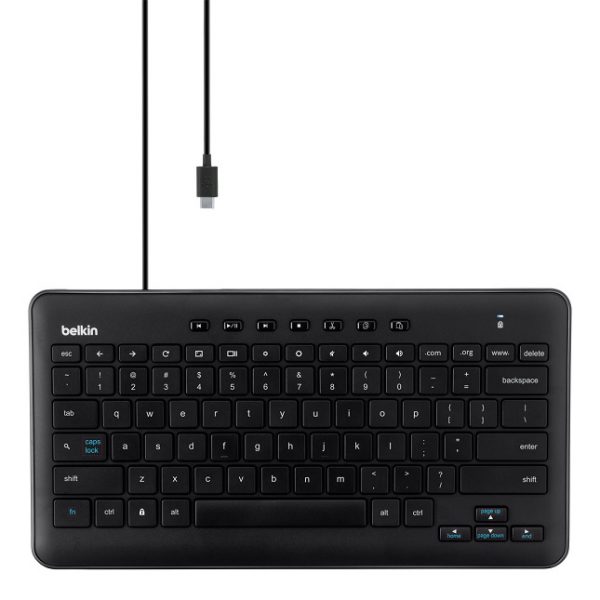
Belkin announces two USB-C keyboards for Chrome OS tablets
Tablets running Chrome OS are actually a thing now, as the Chromebook Tab 10 shows us. While that device is mostly aimed at education, it's only a matter of time before companies offer similar devices for business and personal use too. Since Chrome OS can run Android apps now, some people expect it to replace Android on tablets in the future. I'm not yet sold on that concept -- I still prefer Android running Chrome rather than Chrome running Android, but I'll keep an open mind.
The biggest problem with Chrome OS tablets -- especially for education -- is the lack of a physical keyboard. The Chromebook Tab 10, for instance, is just a tablet -- it does not come with a detachable keyboard. Well, Belkin aims to solve this with the all-new Wired Tablet Keyboard with Stand. As the name implies, it is a USB-C keyboard that props up the tablet for a laptop-like typing experience. In addition, the company unveils a similar keyboard without the stand. That product will work with tablets too, although it is probably better suited for a USB-C enabled Chromebook (when connected to a monitor as a desktop), Chromebase, or Chromebox.
